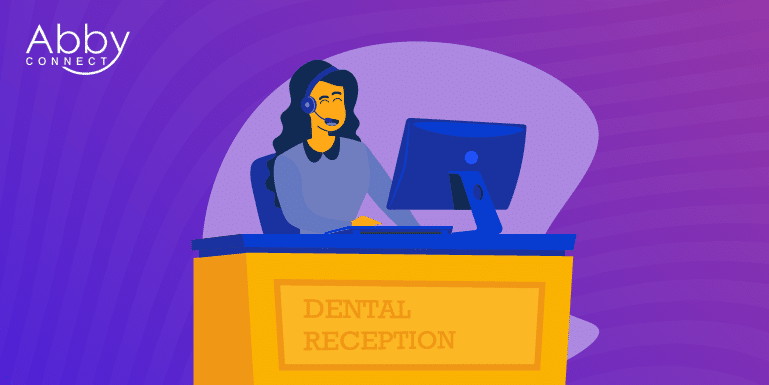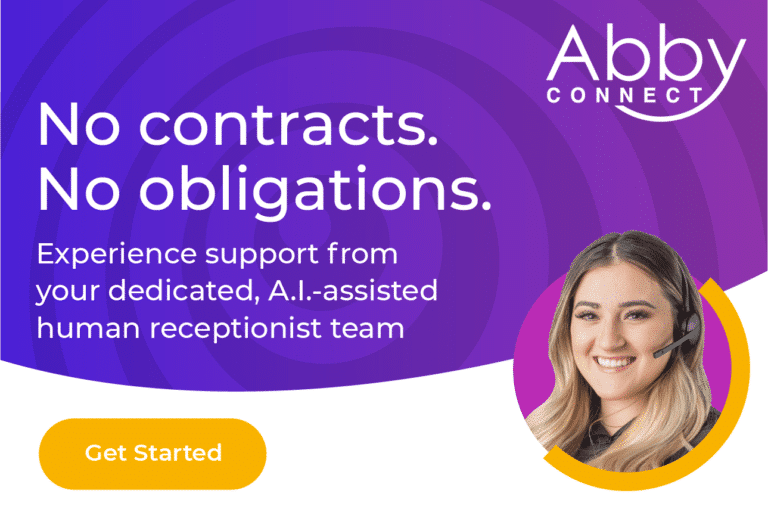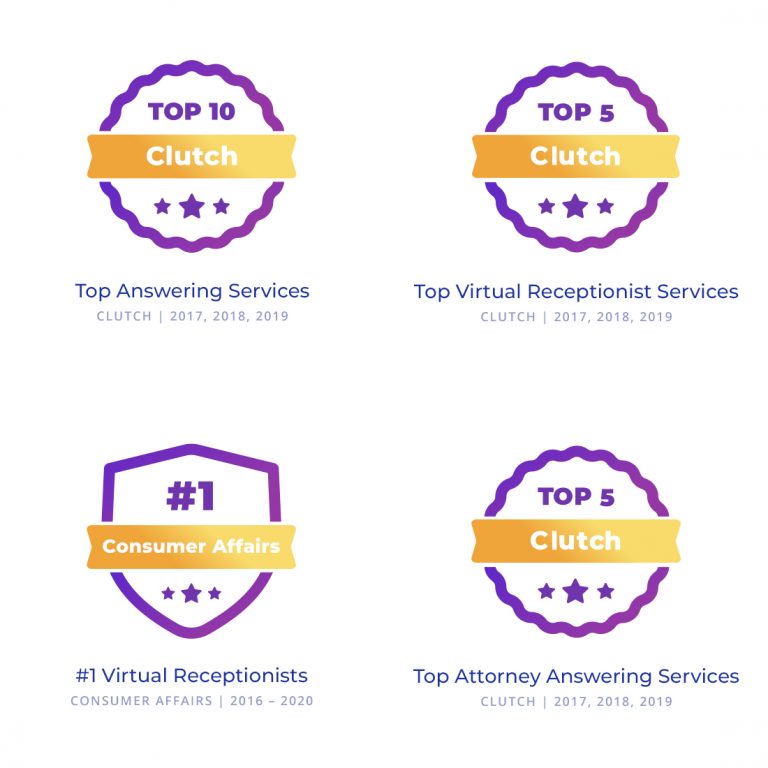
As a dental receptionist or dental practice owner looking to hire a receptionist, it is important to have a thorough understanding of the role a receptionist plays in keeping a dental office running smoothly. There are many things a dental receptionist should know in order to do their job successfully. From greeting and scheduling patients to understanding medical coding and insurance policies, there is a lot of information that every dental receptionist should be familiar with.
In this blog post, we will discuss 5 essential things a dental receptionist should know in order to do their job efficiently while providing a high-quality client experience.
1) How to Greet Patients
Greeting patients is an important part of being a successful dental receptionist. As the first point of contact for patients visiting a dental practice, receptionists are responsible for making sure customers feel welcome and valued. Having strong communication and interpersonal skills is essential to making a good impression and ensuring a positive patient experience.
It can be difficult to make people feel comfortable when they are already feeling nervous or uneasy about going to the dentist. According to a recent survey, nearly 36% of people reported feeling anxious about going to the dentist.1 By having strong communication and interpersonal skills, you can make sure patients are put at ease and make a positive impression with them. A warm, friendly greeting is an easy way to put patients at ease and make them feel comfortable. It’s also important to remain professional and courteous throughout the interaction.
Here are some tips for how to greet patients in a welcoming and professional manner:
- Tone: Use a friendly tone of voice and maintain eye contact when speaking with patients.
- Introduction: Introduce yourself by name and position in the practice.
- Offer Assistance: Thank patients for choosing your practice and let them know you’re happy to help them. Offer assistance to make the patient’s visit more enjoyable and hassle-free.
- Courtesy: Address patients by their last name and use titles such as “Mr.” or “Mrs.” as appropriate.
- Get to Know Them: Ask open-ended questions to start conversations and get to know your patients better.
- Listen: Be patient and listen actively to ensure you fully understand the patient’s needs and concerns.
- Empathy: By being aware of their feelings and demonstrating empathy, you can create a welcoming atmosphere for all patients and make a positive impression.
By using these tips, you can make sure that every patient gets the personalized attention they deserve from the moment they enter your practice. It’s important to remember that the little things matter when it comes to customer service – a friendly greeting can go a long way in creating a lasting impression with your patients!
This is especially important in a dental practice, where a visit can be intimidating for many!
2) How to Answer the Phone
The first step to answering the phone effectively is answering at all. Letting calls go to voicemail can get expensive. You might lose a long-time patient to frustration, miss out on a referral, or miss somebody who needs urgent dental care.
Answering the phone is a critical part of being a dental receptionist, as it’s often the first point of contact with patients.
Here are a few tips on how to answer the phone in a professional manner:
- Always greet the caller consistently. This can sound something like, “Thank you for calling [your practice name], this is [your name] speaking, how may I help you?”
- Be polite and friendly, no matter how the caller speaks or what they say. Patients are often calling the office in moments of stress, and it is your job to alleviate this stress as much as possible.
- Take the time to listen to the caller’s request and answer any questions they might have.
- If you don’t know the answer to a question, don’t be afraid to let them know that you’ll need to research the answer, or talk to the right contact, and will get back to them.
- If you need to transfer the caller to another extension, provide them with clear instructions on how to do so.
- Always thank the caller for calling before ending the call.
By following these simple steps, you can ensure that every call to your dental practice is handled professionally and efficiently. It’s important to remember that as a dental receptionist, you are responsible for creating a positive first impression for your practice.
Answering the phone properly is a key part of this role.
3) How to Schedule Appointments
Scheduling patient appointments is an essential skill for any dental receptionist. It is important that the receptionist be able to quickly and accurately schedule appointments for patients to help ensure satisfaction and timely treatment.
Here are a few tips to help you master the art of appointment scheduling:
- Learn the basics of clinic scheduling. Familiarize and understand the basics of scheduling from the types of things that need to be booked and who can be booked and when.
- Ask questions and listen. When taking an appointment, it’s important to ask the patient the right questions to determine their needs and preferences. Listen carefully to the patient’s answers and be sure to document their responses in the system so you can refer back to them when needed.
- Stay organized. Make sure you have all relevant patient information (name, contact details, insurance details, etc.) ready before you start scheduling an appointment. You should also be familiar with the clinic’s availability, so you can easily find open slots for the patient.
- Follow up. Always follow up with a confirmation call or email to remind patients of their upcoming appointment. This will help minimize cancellations and no-shows.
Knowing how to schedule appointments is an important part of being a successful dental receptionist. With practice and dedication, you can become a master of appointment scheduling!
4) Knowledge of Dental Terminology, Procedures, & Insurance
As a dental receptionist, it’s important to understand the basic terminology, procedures, and insurance related to dentistry. This will enable you to better answer patient inquiries and provide accurate information when scheduling appointments.
Familiarize yourself with common dental terms, such as cavities, veneers, root canals, and crowns–what they mean, generally how long the procedure will take, and the answers to any FAQs.
Be able to explain the differences between common types of treatments and be able to answer any questions that a patient may have about their treatment. Additionally, understand the various types of insurance plans and how they cover dental procedures. Being able to accurately explain different insurance plans to patients can be a great help in ensuring that they get the best possible coverage for their needs.
By having a solid understanding of dental terminology, procedures, and insurance, you can make sure that your patients receive the best care possible.
5) Understanding HIPAA Regulations & Patient Privacy
As a dental receptionist, it’s important to have a thorough understanding of HIPAA regulations and patient privacy. HIPAA (Health Insurance Portability and Accountability Act) is designed to protect the privacy and security of health information.
HIPAA regulations apply to any and all forms of health information, such as medical records, billing information, appointment information, etc. It is critical that dental receptionists understand how to properly secure and handle confidential patient information.
- It is important that all patient information is kept confidential and secure. This means that all patient records must be stored in locked filing cabinets or password-protected databases. Furthermore, any staff members who need access to patient records must be given access on a need-to-know basis only. It is also important that patient records are not shared with any unauthorized personnel.
- Dental receptionists must understand the importance of confidentiality and privacy when speaking with patients. All conversations with patients should be kept private and staff members should not discuss any patient information with anyone outside of the practice. Additionally, patients should be informed when their information is going to be used in any way (such as for insurance claims, billing, etc.) so that they can give consent.
- HIPAA regulations require that dental offices have a written privacy policy outlining how patient information will be handled and secured. Receptionists should make sure to familiarize themselves with the practice’s privacy policy and ensure that all staff members follow these guidelines when dealing with patient information.
It is critical for dental receptionists to understand HIPAA regulations and patient privacy. By following the proper protocols for handling patient information and keeping up with the latest HIPAA regulations, dental practices can ensure that their patients’ data remains safe and secure.
6) Emergency Protocols & Procedures
In a dental office, it is crucial to have protocols and procedures in place to handle emergency situations. Emergency protocols should include step-by-step instructions on how to handle different scenarios that could arise, such as a patient having a medical emergency or the office experiencing a power outage.
Dental receptionists should have a clear understanding of their role in emergencies. The receptionist should be familiar with the emergency plans, know who to contact, and be prepared to take action when needed. This includes being aware of local emergency contacts, such as 911, and having contact information for the dentist available at all times.
Understanding their role in emergencies, the receptionist should also be knowledgeable about emergency protocols in the office. These protocols should include instructions for dealing with medical emergencies, including CPR and the Heimlich maneuver. They should understand what to do if a patient needs immediate medical attention outside of the office, such as calling an ambulance.
The receptionist should also be familiar with emergency procedures for power outages. In the event of a power outage, they should be able to quickly shut down equipment, turn off lights and lock doors. This will help ensure the safety of patients and staff members.
Finally, the dental receptionist should stay up to date on all emergency protocols and procedures, including training and refresher courses. By doing so, they will be prepared to effectively manage emergency situations in the dental office.
Abby Connect For Your Virtual Receptionist Needs
Having a virtual receptionist service is a great way to ensure your dental practice is providing the best customer service possible plus, there are so many advantages of a dental answering service. Abby Connect is a leading provider of virtual receptionist services designed to help your dental practice operate more efficiently. We assign a small team of virtual receptionists who are dedicated to answering for your business.
A virtual receptionist service for dental offices doesn’t necessarily replace your receptionist–instead, we take a lot of phone-based duties off your hands so your team can focus on providing service in-office and digitally. You can use Abby Connect 24/7, after-hours, or whenever you need us to fill in for your in-house staff.
Our dental answering service is made up of highly-trained professionals who specialize in dental reception and customer service. Our virtual dental receptionists are fully versed in HIPAA regulations, patient privacy, and the unique language of the dental industry. They understand the importance of providing exceptional customer service and the complexities of the dental industry.
Abby Connect’s team of virtual receptionists can handle incoming calls, do customized intake, and schedule appointments, freeing up your staff for other important tasks. Outsourcing these dental front-of-office tasks can reduce overhead costs and allow you to provide better patient care. With Abby Connect, you can rest assured that your patients will receive top-notch service every time.
If you’re looking for a reliable and cost-effective way to streamline the operations of your dental practice, consider partnering with Abby Connect. With an experienced team of virtual receptionists, you can be sure that your patients will receive the highest level of service and care!
Sources:
- Dentophobia (Fear of Dentists): Causes, Symptoms & Treatments. (2022). Retrieved March 9, 2023, from Cleveland Clinic website: https://my.clevelandclinic.org/health/diseases/22594-dentophobia-fear-of-dentists

